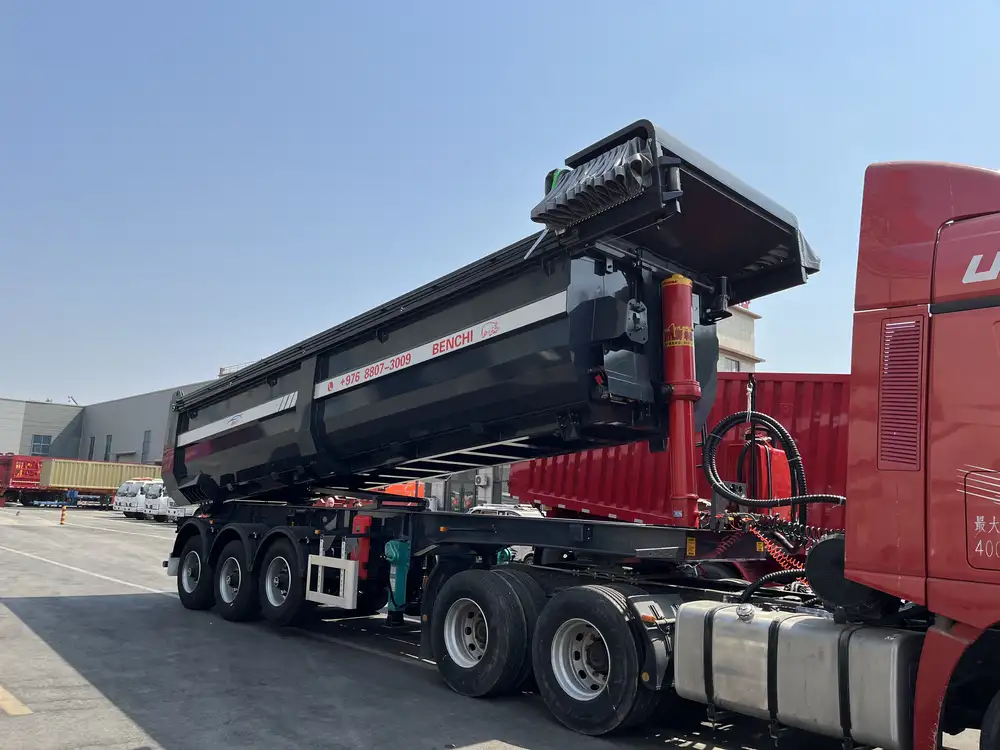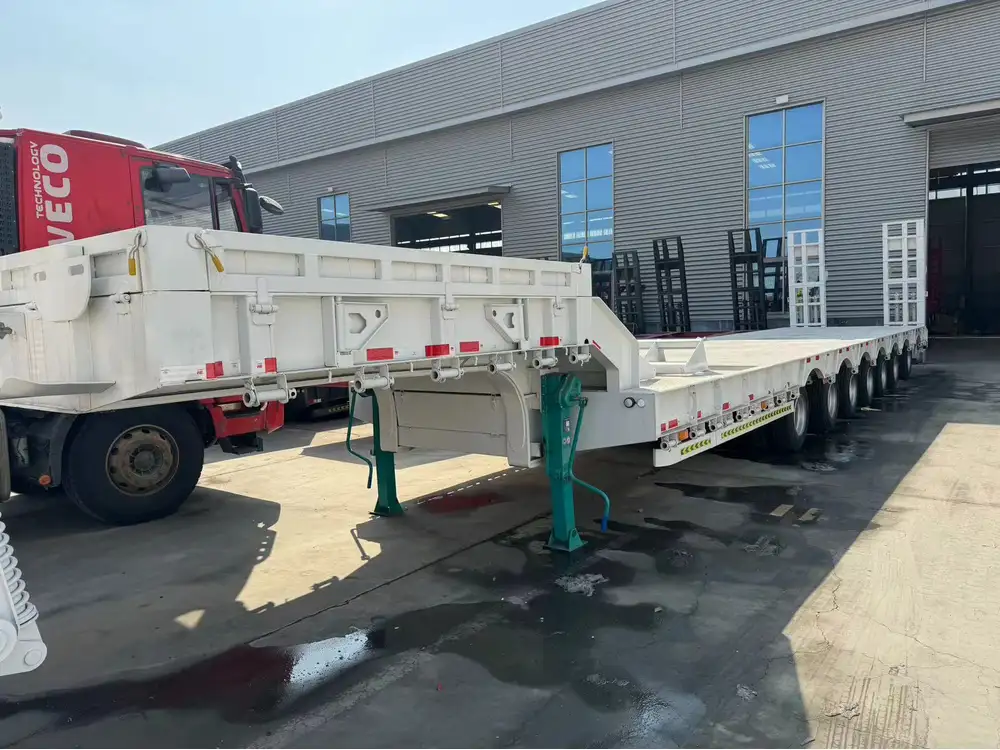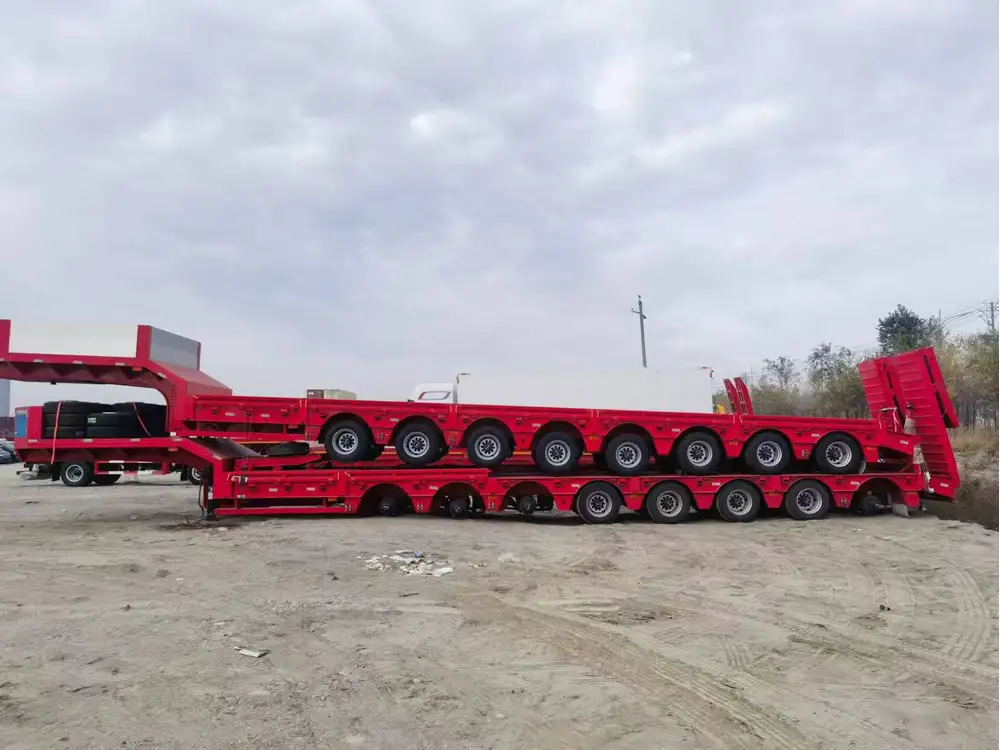When it comes to hauling heavy loads or conducting construction jobs, dump trailers are indispensable. Their versatility makes them ideal for both commercial and personal uses. However, potential buyers often find themselves grappling with one fundamental question: How much are dump trailers? This guide delves into the various factors influencing dump trailer costs, types available, and various considerations to keep in mind before making a purchase.
1. Factors Affecting Dump Trailer Pricing
The price of dump trailers can fluctuate dramatically based on several criteria. Understanding these factors can aid in better budgeting and decision-making.
| Factor | Description |
|---|---|
| Size | Typically, larger dump trailers with higher capacities cost more. |
| Material | Steel trailers tend to be pricier than aluminum ones, due to durability. |
| Brand | Established brands often have higher prices due to reputation. |
| Features | Extra features like hydraulic systems, tarp systems, and ramps add to the cost. |
| Condition | New trailers cost significantly more than used options. |
| Regional Pricing | Prices can vary based on geographical location and market demand. |
1.1 Size Matters
Dump trailers range in size from small, lightweight models capable of carrying a few tons to massive trailers designed for heavy-duty commercial use. While small trailers may start at around $3,000, large ones can reach upwards of $20,000 or more, depending on the specifications.

1.2 Material Composition
The material with which the trailer is constructed plays a crucial role in cost estimation. For instance, while steel models are known for their strength and durability, they are also heavier and might demand higher upkeep costs due to rust and corrosion over time. Conversely, aluminum trailers, although generally lighter and resistant to corrosion, come at a premium price, often 10-20% higher than their steel counterparts.
2. Types of Dump Trailers and Their Price Ranges
Understanding the different types of dump trailers is essential for making an informed purchasing decision. Here’s an overview of the various types along with their estimated price ranges.
| Type | Average Price Range | Description |
|---|---|---|
| Single Axle Dump Trailers | $3,000 – $7,000 | Ideal for light-duty loads and smaller applications. |
| Tandem Axle Dump Trailers | $7,000 – $15,000 | Suitable for heavier loads and offers increased stability. |
| Gooseneck Dump Trailers | $10,000 – $20,000 | Allows for higher load capacity and better towing stability; requires a specialized hitch. |
| High-Width Dump Trailers | $8,000 – $25,000 | Designed to carry larger loads, often seen in commercial settings. |
| Electric Dump Trailers | $5,000 – $12,000 | Features electric-operated mechanisms for lifting; can be ideal for residential use. |
2.1 Single Axle Dump Trailers
Single axle dump trailers are generally more affordable and suitable for customers needing smaller, lightweight options. Their primary use revolves around landscaping, home improvement projects, and transporting small quantities of debris or materials.

2.2 Tandem Axle Dump Trailers
Tandem axle models come with additional support systems, which allow them to carry heavier loads. They are the go-to choice for contractors who regularly handle construction materials, debris, and other heavy goods.
2.3 Gooseneck Dump Trailers
For those requiring higher towing capacities, gooseneck dump trailers offer a robust solution. These trailers typically come with a weight distribution feature that enhances stability when towing heavy loads, making them ideal for commercial applications.
3. Hidden Costs Associated with Dump Trailers
While purchase price is an important consideration, it’s vital to account for hidden costs that could affect the overall expenditure on a dump trailer.

3.1 Maintenance and Repairs
Dump trailers, like any other equipment, require regular maintenance. Factors such as tire replacements, hydraulic system repairs, and potential rust prevention can add up. Many manufacturers recommend a maintenance budget of about 10-15% of the purchase price annually.
3.2 Insurance and Registration Fees
For operating dump trailers, insurance is critical. Rates vary widely based on location, trailer type, and frequency of use. Generally, insurance can range from $300 to over $1,500 annually, depending on the coverage levels chosen. Additionally, registration fees should also be factored into your budgeting.
3.3 Towing Vehicle Compatibility
An often-overlooked factor in the total cost of ownership is ensuring that the towing vehicle is suitable for the chosen dump trailer. The capabilities of the vehicle must meet or exceed the trailer’s Gross Vehicle Weight Rating (GVWR). Upgrading or purchasing a new towing vehicle can significantly increase your total costs.

4. Comparing New vs. Used Dump Trailers
When considering dump trailers, buyers face the option of purchasing either new or used models. Each choice comes with its advantages and disadvantages.
| Criteria | New Trailers | Used Trailers |
|---|---|---|
| Price | Higher upfront cost | Generally more budget-friendly |
| Warranty | Typically includes manufacturer warranty | Limited or no warranty |
| Condition | New and reliable | Varies; potential hidden issues |
| Customization | Often customizable to specific needs | Limited options for modifications |
| Resale Value | Generally retains value better | May depreciate quickly |
4.1 Advantages of New Dump Trailers
New dump trailers come equipped with the latest technology and design features, ensuring reliability and performance. Additionally, they often come with warranties that can provide peace of mind regarding repairs and defects.
4.2 Pros and Cons of Used Dump Trailers
On the flip side, used trailers can save buyers a significant amount of money; however, the risk of hidden wear and tear can make this a less appealing option. It’s crucial to conduct thorough inspections when considering used trailers to avoid unpleasant surprises post-purchase.

5. Key Features to Look for in a Dump Trailer
When navigating purchasing options, certain features can significantly enhance a dump trailer’s functionality and usability.
5.1 Hydraulic Lifting Mechanism
A quality hydraulic system is critical for efficient unloading. Look for models with a robust hydraulic pump and strong lift ram, as these components directly affect the trailer’s unloading speed and ease of operation.
5.2 Tarp System
Having a tarp system prevents debris from flying out during transport, ensuring compliance with local waste management regulations and enhancing safety on the road.

5.3 Reinforced Flooring
Heavy-duty flooring is a must for trailers anticipated to carry substantial loads. Check for reinforced floors, often made of treated wood or high-grade steel, to ensure durability.
5.4 Safety Features
Look for trailers that come equipped with safety features, such as reflectors, brake lights, and safety chains. These can reduce the risk of accidents and may even affect insurance costs.
5.5 Additional Specifications
Consider other specifications such as weight capacity, axle configuration, and wheel sizes to align with specific applications. Having a clear understanding of your needs before venturing into the market can save time and money.

6. Financing Options for Dump Trailers
Purchasing a dump trailer may constitute a considerable investment. However, various financing options are accessible to assist prospective buyers in obtaining their equipment without undue financial strain.
6.1 Direct Financing from Manufacturers
Many manufacturers offer financing solutions directly to customers. These often come with lower interest rates and more favorable terms since the company has a vested interest in selling their product.
6.2 Bank Loans
Traditional bank loans are another option, though they might entail lengthier processing times. Interest rates can vary based on credit scores and other conditions set by the bank.

6.3 Equipment Leasing
Leasing provides an alternative for those not ready for a full purchase. Generally, leasing a dump trailer permits access to high-quality equipment for a specified timeline without the long-term commitment.
7. Final Considerations Before Purchase
Before making the leap into purchasing a dump trailer, it’s essential to take a few final considerations into account.
Purpose: Have a clear understanding of the intended use. Whether for construction, debris removal, or landscaping, your choice should reflect your needs.
Budget: Include hidden costs, maintenance, and refinancing options when setting your purchase budget.
Research: Take the time to compare models, brands, and reviews. Engaging with other owners and industry experts can provide valuable insights.
Inspection: If buying used, always inspect trailers thoroughly. A professional inspection can uncover underlying issues that could affect performance.
Conclusion
Determining how much dump trailers cost involves much more than a simple sticker price. By understanding various factors, types, and additional expenses, prospective buyers can navigate their options effectively. Careful consideration and research can lead to a purchasing decision that not only fits their budget but also meets long-term operational needs.
In the competitive arena of dump trailer purchasing, the knowledge encapsulated in this guide equips you to make a decision that stands up to scrutiny and fulfills your hauling requirements. Whether you’re looking for a robust gooseneck trailer to tackle demanding loads or a nimble single axle for home projects, we hope this comprehensive guide places you on the right path to finding the perfect dump trailer.



